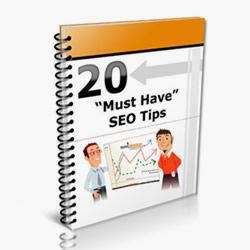After last week’s Whiteboard Friday on the penalties paid links can incur, I got several questions about whether paid/spammy links could be used as a weapon to potentially harm someone else’s rankings. In this post, I’ll walk through why this is rarely the case, how you can defend yourself from potential scenarios and why this isn’t a great tactic to employ against your competitors.
Can Paid Links Be Used as Weapons in the SERPs?
The short answer is “almost never.” But, as is typical in the SEO world, there’s a lot more in the long version.
In general, it’s very, very hard to bring down a white hat site/page ranking well in the search results. Although Google isn’t perfect at catching spam (e.g. our recent video featuring the success of some very obvious paid links in a well known network), they seem to be surprisingly excellent (almost prescient) at detecting the intent of links. My suspicion is that sites who buy links to prop up their own rankings have very different patterns than those who have competitors buying links to them. These patterns exist on the sites themselves, in other sites registered to the owners, in link footprints and in usage/search behavior.

It could, in fact, be that the “penalties” many SEOs often ascribe to paid links are in fact the result of a much more sophisticated analysis by Google looking at multiple aspects of a site’s presence before making a determination of the link intent. Given that, in nearly 10 years of SEO, I’ve only heard of two reasonably verifiable instances of “Google-bowling” (the process of pointing bad links at a site or page to hurt it’s rankings) working, my guess is that Google’s webspam team has developed some very impressive methods here.
Many SEOs have also suggested that a certain “bar of trust” can be achieved in Google, after which, negative links may be devalued, but likely don’t cause penalties or rankings drops. This makes a lot of sense to me (though it’s nearly impossible to prove), since “Google-bowling” is largely defeated and even good sites who stray into black/gray hat link building will simply find themselves wasting money, rather than being removed from the results (which could, for many popular brands/sites, cause a loss of relevance in the results for users).
Thus, if you are trying to wield paid links as a weapon against your ranking competitors, it’s far more likely to work against the new(ish) site ranking #65 for your keywords rather than those who’ve earned their way to the top spots with white hat techniques.
Defending Yourself from Potential Link Attacks
Have you recently broken the heart of a black hat link broker’s son or daughter? Stepped on a link farmer’s superhero cape? Talked smack about a nefarious panelist at an SEO conference not realizing they were just around the corner? The best defense, in this case, is a good defense (don’t go buying and renting links to others; you’re only enriching the spammers).
Many, many SEOs and webmasters worry a tremendous amount about spammy links pointing to their sites and pages. By and large, this isn’t a concern and it happens to every site on the web. Just look at some of the spamtastic links that point to SEOmoz (via this Yahoo! query):

If you see a collection of scraper sites filled with pharmaceutical, financial, legal, real estate and other questionable links with surprisingly well-optimized anchor text appearing in Google Alerts or your 24-hour reputation monitoring queries (e.g. http://www.google.com/search?as_q=seomoz&as_qdr=d&num=100 – which queries Google for all pages mentioning “seomoz” in the past 24 hours) don’t panic. If you exist on the web, you’re going to attract these types of links and the search engines will not punish you for it, even if you’re a relatively new, untrusted site.
However, if you start acquiring links that look an awful lot like they’re part of an intentional, paid link network (great anchor text, pointing to internal pages on the site, coming from footers and sidebars that contain other irrelevant, anchor-text rich links), there may be some cause for concern. Your best course of action is to submit a spam report to Google from your own, verified, Webmaster Tools account, noting that you have nothing to do with the links and want to make sure Google doesn’t think you’ve created, endorsed or paid for them.
This action is rarely necessary or worthwhile, but if you’re highly concerned about competitive conduct, it’s not a bad route to take. Of course, you’ll want to make sure you don’t actually engage in any black/gray hat activity yourself or it could trigger the wrong kind of review by a webspam team member.
Should I Buy Links to Push Down My Competitors?
Not unless you feel the link brokers of the world are more worthy than your favorite charity.
Seriously, the chances you’ll have a negative impact are far lower than the changes you’ll actually help (again, I refer back to our paid link WB Friday experiment in which the obvious link network had positive effects, even on the brand new site). The money is far better off spent on editorial content, public relations, social media campaigns and white hat SEO efforts for your own stite. Bringing someone else down may seem temporarily, emotionally satisfying, but it’s the wrong way to approach SEO (and life in general, if I may be so bold).
Looking forward to the discussion in the comments and happy to talk through the filtration processes and failsafes (or at least, my speculation) Google may employ.
p.s. The new Beginner’s Guide to SEO has more on understanding + recovering from search spam penalties.

